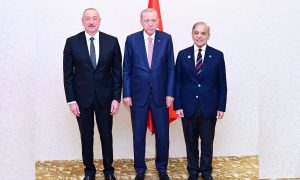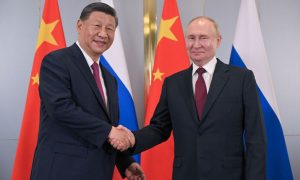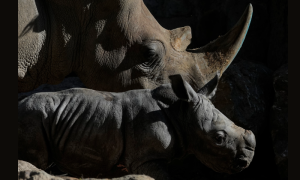By Dr. Zafar Nawaz Jaspal, December 28, 2022
President Xi Jinping’s three days trip to Saudi Arabia from December 7 to 9, 2022, to participate in the three important summits, i.e., a Saudi-China summit, a GCC-China summit, and an Arab-China summit, would have an immense impact on the regional and global geopolitics.
These summits testify to the convergence of Chinese and Arabs interests, despite the existence of a Sino-Iran 400 billion US dollars strategic partnership and pro-American Arab sheikdoms.
Notwithstanding Beijing and Washington’s multidimensional interdependence, they are locked in increasingly dangerous confrontation—the hallmark of a new cold war. Antony J. Blinken, Secretary of State, claimed that China has been rapidly modernizing its military and intends to become a top-tier fighting force with global reach.
He sounds spot-on because the Chinese leadership has not concealed the armed forces modernization plan to advance combat readiness and submarine warfare, improving the ability to carry out long-range precision strikes and the capacity to conduct increasingly sophisticated space, counter space, and cyber capabilities.
In addition, President Xi announced transforming the People’s Liberation Army into a “world-class” military by 2049.

Beijing is increasingly apparent in its ambitions and intentions in the Afro-Arab world. Its manifested interest is regional politico-economic stability, a prerequisite to accomplishing the Belt and Road Initiative (BRI) projects.
Therefore, China is not interested in challenging the current security architecture of the region comprised of the United States.
President Xi’s visit further synchronizes BRI and Saudi Vision 2030 plan. On December 8, Chinese President Xi and Saudi Arabia’s Crown Prince Mohammed bin Salman signed “harmonizing” Vision 2030 and BRI agreements. The new agreements included judicial assistance, direct investments, education, hydrogen energy, and defense cooperation.
China-GCC trade volume remarkably expanded during the last three decades. For instance, it rose from & 2 billion in 1992 to $229 billion in 2022. China is the GCC’s top trading partner, accounting for about 20 percent of total GCC trade with the outside world.
The trade volume would remain on a positive trajectory because the Arab countries need sophisticated technology, and China remains a top buyer of their oil exports. Besides, China is also interested in investing in these countries’ ports, mining, nuclear technology, and defense sectors, especially in the Saudi defense industry.
During his speech to the Gulf Cooperation Council in July 2022, President Biden underlined that America would not walk away and leave a vacuum to be filled by China, Russia, or Iran. He added, “We will seek to build on this moment with active, principled, American leadership.”

Saudi Arabia is cultivating a deep partnership with China without terminating more than eight decades of the strategic alliance with the United States. According to the 4,000-word joint statement published by the official Saudi Press Agency (SPA) on December 9, both sides committed to expanding relations in their foreign framework and setting an example of cooperation, solidarity, and mutual gain for developing countries.
Besides, they “firmly support each other’s core interests, help each other in maintaining their sovereignty and territorial integrity, and exert joint efforts to defend the principle of non-interference in the internal affairs of states, rules of international law and basic principles of international relations.”

President Biden, opined the United States needs to “rethink” its relationship with Saudi Arabia.

To conclude, President Xi’s visit to Saudi Arabia manifested that Riyadh, rather than sticking with its traditional ally Washington, is progressively moving closer to Beijing.
Professor Dr. Zafar Nawaz Jaspal is from School of Politics and International Relations, Quaid-i-Azam University, Islamabad, Pakistan, is a senior analyst and frequently writes on international relations.
He can be reached at [email protected]






















